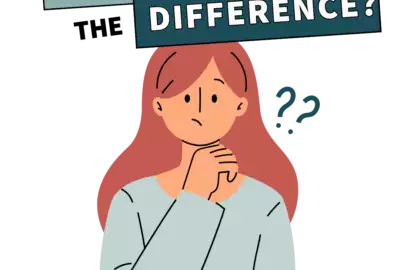- Oxbridge Law 24/25 Entry
- Non-Oxbridge Law 24/25 Entry
- Oxford PPE 24/25 Entry
- Oxbridge Economics 24/25 Entry
- Oxbridge Modern Languages 24/25 Entry
- Cambridge Land Economy 24/25 Entry
- Oxbridge Psychology 24/25 Entry
- Oxbridge English 24/25 Entry
- Oxford Human Sciences 24/25 Entry
- Oxbridge History 24/25 Entry
- Oxbridge Geography 24/25 Entry
- Cambridge Philosophy 24/25 Entry
- Oxbridge Classics 24/25 Entry
- Cambridge Architecture 24/25 Entry
- Cambridge HSPS Programme 24/25 Entry
- Oxbridge Medicine 24/25 Entry
- Oxford Biomedical Sciences 24/25 Entry
- Oxbridge Engineering 24/25 Entry
- Cambridge Natural Science 24/25 Entry
- Oxbridge Maths 24/25 Entry
- Oxbridge Computer Science 24/25 Entry
- Oxford Physics 24/25 Entry
- Oxford PPL 24/25 Entry
- Cambridge Veterinary Science 24/25 Entry
- Oxford Chemistry 24/25 Entry
- Oxford Biology 24/25 Entry
- Oxford Biochemistry 24/25 Entry
- Non-Oxbridge Medicine 24/25 Entry
- Non-Oxbridge Dentistry 24/25 Entry
- IMAT Medicine 24/25 Entry
- Can’t Find Your Subject?
- Law Interview Programme
- PPE Interview Programme
- Economics Interview Programme
- Oxbridge Medicine Interview Programme
- Natural Science Interview Programme
- Engineering Interview Programme
- Maths Interview Programme
- Dentistry Interview Programme
- Medicine MMI Interview Programme
- Our Guarantee
Our Students
Student Success Stories
- University Access Scheme
- New Tutor Application Form
- Frequently Asked Questions
- Free Expert Consultation
- +44 (0) 208 068 0438
- [email protected]
SCIENCE PROGRAMMES (25/26 ENTRY)
HUMANITIES PROGRAMMES (25/26 ENTRY)
GET STARTED
Can't find your subject?
OXFORD TESTS (25/26 ENTRY)
CAMBRIDGE TESTS (25/26 ENTRY)
MEDICINE TESTS (25/26 ENTRY)
View Our Free admissions guides & resources
How UniAdmissions Cracked The Oxbridge Formula
Applying for Oxbridge is an opportunity seldom approached correctly. So how do you enter the top 16% of a strong cohort of applicants that get an offer? Discover how UniAdmissions get 2/3 of our students in.
When Do 2024 Medicine Offers Come Out?
When do UK Medical School Interviews start and when do they release their final offers to applicants? Find out all the dates for 2024 medical school admissions in this helpful guide.
Inside The UniAdmissions Portal: The UA Advantage
UniAdmissions students have access to the world's first dedicated Oxbridge admissions preparation platform, and this guide will help you discover exactly how the Portal will help you get your offer.
Discover all guides
ABOUT UNIADMISSIONS
Learn about who the world's first Oxbridge prep school are.
Learn about the Portal; the heart of our Programmes.
UniAdmissions' Foundation
The Foundation is our charitable arm to support disadvantaged students.
Students & Tutors
Discover who a UniAdmissions student is and our admissions criteria.
Learn about our high-performing Oxbridge tutors.
We're proud of our alumni. Read about their journey with UniAdmissions here.
Admissions Resources
Free Admissions Guides
Visit our Learning Centre and read our in-depth free guides.
We are the world's biggest Oxbridge application publisher. Learn more here.
Teachers Learning Hub
Learn about how to help your students get their place at Oxbridge.
Get Started
- Access Student Portal
- Oxbridge Programmes
- Open Day Webinar
- Tutor Application Form
- Common Questions
- Download Our Prospectus
- Book Consultation
- UCAS Personal Statements Are Changing in 2025
Last Updated: 16th January 2023
Author: Matthew Amalfitano-Stroud

Table of Contents
It was announced by UCAS in January of 2023 that traditional Personal Statements will be removed from the university application process in the UK.
Since 1993, UCAS has required university applicants in the UK to submit a 4,000-character Personal Statement during the application process, which would then be accessed by university admissions teams to assist in the shortlisting process.
However, it has been confirmed by UCAS that this process will be changing as soon as 2025. Here, we dissect the announcement, discuss what we currently know about this change and explain how this could affect your university application. Let’s begin:
In short, this is what you need to know:
- UCAS Personal Statements are being replaced by a multi-question survey that gives applicants the chance to explain various aspects of their application.
- This change could be implemented as early as the 2025 admissions cycle for 2026 Entry in the UK.
- This will affect all applicants, both home and internationals, looking to attend a UK university in 2026 and beyond.
- Students will need to learn how to take on these new questions rather than traditional Personal Statement writing.
- Teachers will need to be prepared to do research on this new system and provide support for students in order to maximise their chances of success.
- We at UniAdmissions are keeping a very close eye on the situation and will update this guide as new information surfaces. We will also ensure that our support systems are up-to-date and effective at helping students through these changes.
What are Personal Statements Being Replaced with?
With the announcement that the current system for UCAS Personal Statements will be getting replaced, it is only natural to be asking what will be replacing it. Thankfully, we have already been given some idea of what to expect.
Unlike the other major shake-up to the 2024 admission process, the removal of various admissions tests including the BMAT , the official announcement has provided us with an explanation of what UCAS is seeking to implement instead of traditional Personal Statements.
Put simply, the current format of providing a 4,000-character piece of writing will be replaced with a series of specific questions which applicants must answer. These questions will still allow you to write your answers out, but you will be answering set questions instead of having to plan and structure a full statement from scratch.
The specifics of this system have not been announced yet, including the number of questions and the character limits. We also don’t know what the questions will be yet as they are still being developed. However, we do know the key areas that these questions will focus on (all points are taken directly from the UCAS report):
- Motivation for Course – Why do you want to study these courses?
- Preparedness for Course – How has your learning so far helped you to be ready to succeed on these courses?
- Preparation through other experiences – What else have you done to help you prepare, and why are these experiences useful?
- Extenuating circumstances – Is there anything that the universities and colleges need to know about, to help them put your achievements and experiences so far into context?
- Preparedness for study – What have you done to prepare yourself for student life?
- Preferred Learning Styles – Which learning and assessment styles best suit you – how do your courses choices match that?
Of course, this is all subject to change as UCAS is still actively working with universities to determine what they want most from applicants. However, it seems that they are aiming to cover the same ground as traditional Personal Statements while also allowing applicants to discuss more personal factors such as motivation, preference and extenuating circumstances.
At UniAdmissions, we ensure all of our students receive the most up-to-date support.
At UniAdmissions, we’re working tirelessly to ensure that our tutors, curriculum and resources are ready to get our students through these changes. You can join them today and ensure you get the support you need to make it through the 2024 admissions cycle .
Discover our Oxbridge Premium Programmes below and find out how you can enrol and triple your chances of success .
When Are UCAS Personal Statements Being Replaced?
The initial announcement stated that these reforms to the Personal Statement system will be introduced in the 2024 admissions cycle for 2025 entry. However, UCAS have since gone back on this and delayed the change to as early as 2025 (for 2026 Entry). However, this change could also occur the following year for 2027 Entry.
UniAdmissions contacted UCAS directly to confirm if a date had been set for the implementation of the new Personal Statement format. The representative stated the following:
The current discussion around the Personal Statement changes are to improve the application process for all applicants. At the moment the earliest this change would take place is in the 2026 application cycle. There won't be any changes this year. UCAS Representative
It’s worth mentioning that these plans have been in place for a fair amount of time, with discussions of reforming the application process starting in April 2021. However, this change still won’t be implemented for another year, so applicants applying for 2025 (and potentially 2026) Entry will still need to submit a traditional Personal Statement.
Why Are UCAS Personal Statements Being Removed?
The announcement of these reforms was made on January 12th 2023 via a blog post on the official HEPI website. This post highlights the amendments being made to the Personal Statement process and the research that was conducted to influence this change.
Interestingly, the data quoted in this post states that the majority of applicants surveyed were happy with the current Personal Statement process, with 72% feeling positive about it. However, the same survey indicated that 83% of applicants found the process stressful and 79% felt unable to complete theirs without support. This is the data that most likely influenced the changes.
The post’s writer, Kim Eccleston, states that they are aiming to provide better support for both applicants and universities, creating “a more supportive framework” that allows applicants to write about what the universities need to know in a less restrictive way. It is also stated in a more detailed outline of the announcement that both students and teachers preferred the use of specific questions instead of free-form writing.
However, a previous post released in November 2022 provides even more insight into the reasoning behind this decision. Based on data featured in HEPI Debate Paper 31 , various industry professionals had commented on the challenges facing applicants of certain background when it comes to the current style of Personal Statement.
Within the quotes featured here, the traditional UCAS Personal Statement was described as “ambiguous” , “unfair” and “barometers of middle-class privilege” . These comments may potentially be in reference to the current importance of work experience, which can be difficult to obtain without connections in certain industries, as well as additional experiences which may not be available to all applicants.
Therefore, this new system should presumably reduce the barriers for disadvantaged applicants by shifting focus to each individual’s own interest and abilities within their chosen subjects.
Other Changes being Made by UCAS
Personal Statements are only one of five key areas being altered by UCAS, as highlighted in the blog post. This is certainly the most significant action taking place, but other changes to the application process include:
- Academic references are being reformed, moving from a free-text approach to a set of three questions, similar to the Personal Statement reforms.
- The 'Entry Grade Report' will be created, which allows applicants to see grade profiles that have been accepted for courses over a five year period.
- A 'Course Recommendation Tool' is being created to provide applicants with personalised suggestions for courses based on their current grades and preferences.
- A 'Fair Access Programme' is being created to encourage widening access and participation.
Overall, it seems these changes all have the same intent; to level the playing field and make university applications more achievable for everyone.
How will this affect my university application?
As previously stated, if you are applying to university this year for 2025 Entry, you will not be affected by these reforms and will need to submit a traditional Personal Statement to UCAS like previous years.
For applicants applying for 2026/27 Entry and beyond, your application will follow this new process, meaning you won’t have to submit a full Personal Statement but will instead need to answer a series of questions relating to your application and abilities for your chosen course.
When hearing that the whole process will be changing, this typically instils a feeling of dread as you’ll be treading new ground that no one else has experienced before. However, it’s important to understand that UCAS states these changes are being made for the benefit of both the applicants and the universities.
As we’ve already discussed, a key part of the reason this change is being implemented is that a high percentage of applicants found writing a traditional Personal Statement stressful, which is counterintuitive to what UCAS is trying to achieve. By providing applicants with a strong framework, in the form of specific questions, this new process should allow more applicants to provide better quality statements for universities.
This change is also set to be particularly beneficial to those from disadvantaged backgrounds, as the process will allow them to better express their ability regardless of any areas that may be lacking due to factors out of their control. Essentially, the new process should allow more people to stand a better chance of making a good impression despite limitations.
How Can I Start Preparing?
If you’re starting your preparations early, the main barrier you’ll face at this stage of preparation is not knowing what the questions will be, as they have yet to be announced. There are no resources available currently that cover this system, so you’re going to have to be independent with your preparation here.
Since we have a rough outline of what the questions to focus on, you should still be able to practice your responses. Although they won’t be as relevant any more, it would still be helpful to check out Personal Statement guides and examples as these can help you pin down the language and writing style you use.
With all this information now available to us, you should be able to get a sense of what to do for your application in the coming years. The initial introduction of this system in 2024 will act as a test of its effectiveness, so elements could be changed in the years following. However, the important thing is that you understand how things are changing from the current system and how you can make the most of the new system.
If you are applying for university in 2023 for 2024 Entry, you will need to make sure you’re ready to write your Personal Statement. Thankfully, UniAdmissions have plenty of resources to help you through it, including our Ultimate UCAS Personal Statement Guide and our collection of successful Oxbridge Personal Statements .
If you’re looking for more in-depth support that covers the whole application process for Medicine, Law and Oxbridge courses, them find out how you can enrol in one of our Premium Programmes .
Start your Oxbridge application journey in the best way possible with effective support from our Oxbridge Tutors .
Regardless of what changes are made to the Oxbridge admissions process, we will be ready to provide you with the very best support for your application. Our students have access to expert Oxbridge tutors, comprehensive online courses, intensive preparation events and so much more.
Find the right Oxbridge Premium Programme for you and discover how you can triple your chances of success when you enrol .
UniAdmissions students placed at Oxford And Cambridge
Continue learning about Oxbridge...
Ai writing & ucas personal statements: what you need to know.
When it comes to writing in the 2020s, AI-Generation has become one of the most important issues for many industries,…
Cambridge Announces the ESAT to replace the NSAA and ENGAA
In 2023, it was announced by the University of Cambridge that many of their established admissions tests would stop being…
Oxbridge Personal Statements: A Complete Teacher’s Guide
As a teacher, you will support students with their UCAS Personal Statements every year, but what about Personal Statements for…
Changes to Oxford Admissions Tests in 2023
It has been announced that a series of admissions tests used by the University of Oxford will no longer be…
Successful Personal Statement For Economics & Management At Oxford
Writing an Economics and Management Personal Statement for Oxford? If so, you’re in the right place! In this post, we…
Successful Personal Statement For Computer Science At Oxford
Read through a successful Computer Science Personal Statement for Oxford with a full analysis by Oxbridge Tutors. Find out why…
The Secrets to Oxbridge Admission.
- We cracked the Oxbridge formula . Find out what we discovered here.
- Looking for application support? Don't work with a random tutor. This is what you need to know first.
- Get up-to-date Oxbridge advice with our webinars. Follow our Open Days led by our experts and stay updated.
- Begin your Oxbridge journey with UniAdmissions through our programmes of support by clicking here.
How would you like to speak to an Admissions Consultant?
Clearing Universities & Courses
Clearing advice.
Recommended Clearing Universities
Popular Course Categories
Course search & discover.
Start the search for your uni. Filter from hundreds of universities based on your preferences.
Search by Type
Search by region.
Recommended Universities

Ravensbourne University London
London (Greater) · 88% Recommended

City, University of London
London (Greater) · 92% Recommended

University of Surrey
South East England · 98% Recommended
Search Open Days
What's new at Uni Compare

University of Sunderland
Unlock your potential at one of the world’s best young universities (THE, 2023).

Surrey has been shortlisted for the University of the Year 2023 - find out more here!
Ranking Categories
Regional rankings.
More Rankings
Top 100 Universities
Taken from 65,000+ data points from students attending university to help future generations
About our Rankings
Discover university rankings devised from data collected from current students.
Guide Categories
Advice categories, recommended articles, popular statement examples, statement advice.

What to include in a Personal Statement

Personal Statement Tips
Ucas personal statements are changing: here’s what you need to know.
Personal statements are set to become a thing of the past. The University and Colleges Admissions Service (UCAS) has introduced a new process for university applications.

Personal statements are set to become a thing of the past. The University and Colleges Admissions Service (UCAS) has introduced a new process for university applications from 2025, meaning that the process will change in 2024 ready for 2025 entrants.
Personal statements have always been an essential part of the university application process. However, UCAS has decided to scrap personal statements in their traditional form. They will now be replaced by a new three-question structure.
If you are preparing to apply for university right now, then you don’t need to worry too much. This new structure isn’t coming into play until 2025, when students are applying for 2026 entry.
What is the new application process?
The new application process differs from the original university application process. Initially, university students were required to write a personal statement, which would be uploaded to UCAS Hub . Universities would then read the personal statement as part of your original university application and make their offers from there.
Under the new process, it will work differently. Under the new university admissions policy, you will no longer be required to write a detailed personal statement but will need to answer questions related to three key areas.
Current key themes are:
- Motivation for course: Why do you want to study the course?
- Preparedness for course: How has your learning thus far helped you to be prepared for your course?
- Preparation through other experiences: What else have you done to help yourself prepare? How and why are these experiences so useful?
- Extenuating circumstances: Is there anything the university needs to know about you? (optional)
These questions allow students to present themselves in their own words but with more structure. Teacher references will also change, allowing for more objective comments.
Depending on user feedback, these questions may change in the future.
- Preparedness for study: What have you done to prepare yourself for student life?
- Preferred learning styles: Which learning and assessment styles suit you best?
Following extensive consultation, UCAS scrapped the latter three. This is because UCAS discovered that the themes would be too difficult to universities that have different teaching and assessment styles. The extenuating circumstances question will have a different section to be answered, but not everyone will need to answer it.

When does this new process start?
This new process will be introduced in 2025 and take effect for 2026 applicants. Those applying to university for 2023, 2024 or 2025 will still need to write a personal statement for their application in the current format.
This means the new process will be coming in after January 2025 (October 2024, if you are applying to Oxbridge ).
A personalised tool will also launch later this year. This tool will provide applicants with entry-grade reports that will give students a range of the profiles accepted onto similar courses over a five-year period, using UCAS data.
Why is the process changing?
UCAS has decided to change the university application process based on student feedback. This process will now offer greater support for applicants from different academic backgrounds.
UCAS has recently published their own report on current applications, called the Future of Undergraduate Admissions report. This research discovered that, out of 13,000 polled students, as many as 83% found writing a personal statement to be too stressful, while a further 79% found the statement too difficult to write without appropriate support.
Personal statements were not unpopular, however. 72% of students found that personal statements were essential parts of the university application process. Personal statements allowed students to stand out as more than just application numbers and their grades. However, the question format s will allow students to continue to stand out from other applicants.

How are teacher references changing?
Teacher references are changing to allow teachers to make more objective comments regarding students. Students can pick current or former academic referees, such as teachers, tutors or head teachers; these referees will then write a full reference to their career goals, work experience and predicted grades.
This process is set to change slightly for 2026 applicants. Under the new system, the referee will instead answer three structured questions. In these questions, teachers will include a general statement about the student’s school or college, any extenuating circumstances that could affect the student’s exam performances and any other circumstances the teacher feels the university should be aware of.
undergraduate Universities
Undergraduate uni's.

Ravensbourne

245 courses

Uni of Surrey
437 courses

Uni of Kent
417 courses
.jpg)
Uni of Roehampton
268 courses

ARU Writtle
104 courses

West London IoT

Uni of Leicester
267 courses

Uni of Chester
399 courses

Goldsmiths, UOL
273 courses

Northeastern Uni

Middlesex Uni
469 courses

Uni of Suffolk
109 courses

Uni of Bedfordshire
336 courses

Uni of Bradford
197 courses

Cardiff Met Uni
304 courses

Uni of Sunderland
200 courses

Uni of East London
317 courses

Uni of Winchester
161 courses

528 courses

Leeds Arts University

Kingston Uni
378 courses

Uni of Hertfordshire
419 courses

238 courses

Coventry Uni
445 courses

Uni for Creative Arts
323 courses

Leeds Beckett Uni
327 courses

Heriot-Watt Uni
208 courses

Staffordshire Uni
272 courses

414 courses

Swansea Uni
780 courses

Anglia Ruskin Uni
460 courses

Uni of Westminster
,-Bristol.jpg)
UWE, Bristol
249 courses

Uni of Essex
797 courses

Uni of C.Lancashire
438 courses

Wrexham Uni
168 courses

355 courses

Uni of Huddersfield
458 courses

Escape Studios

Uni of Portsmouth
542 courses

Uni of Brighton
253 courses

Bath Spa Uni
295 courses

Edge Hill Uni
243 courses

Uni of Hull

Nottingham Trent
539 courses

Edinburgh Napier
184 courses

Uni of Reading
393 courses

Queen's Uni
411 courses
Want to learn more about a university?
Get your questions answered by sending them an enquiry now.
The Ultimate Guide To UCAS And Personal Statements
by The Oxford Scholastica Team | 31 Jan, 2024 | Blog Articles , Get the Edge

Table of Contents
What does UCAS stand for?
UCAS stands for Universities and Colleges Admissions Service. It is the centralised online service in the UK that everyone has to use in order to apply to any undergraduate University course in the UK.
How many courses can you apply to on UCAS?
Through UCAS, you can select up to five different courses to apply to. These can be at the same university, different ones, or a combination of both. It’s completely up to you! If you’re struggling to choose what to study, read our guide on how to find the right university course for you .
How does UCAS work?
You write and submit your application via UCAS, and UCAS sends this to the admissions teams for each of the courses you’ve selected. They will then consider your application along with all the others they have received from different students around the world, and decide who they would like to offer places.
So, UCAS is effectively the link between you and the universities you’re applying to. This means you have to sell yourself as best you can on your UCAS application, since this may be all that the admissions teams are basing their decisions on.
UCAS deadlines
UCAS have two major deadlines for undergraduate application submissions. The earlier deadline is for anyone wanting to apply to Oxford or Cambridge, and for most medicine, veterinary medicine and dentistry courses across the country. This early deadline is usually 15th October . But be sure to double check that this is true for your year! The deadline for all other undergraduate courses is usually 15th January . However, many universities and colleges continue to accept applications from international students until later in the year as part of the regular college admissions cycle .
There’s quite a big gap between these two deadlines. This is because all courses with the earlier cut off point require you to go for an interview before they make their offers, so they need time to schedule these. This means you need to decide quite early in the year (by the summer before your deadline) whether you’re going to apply to any of the courses with the 15th October cut off, so that you have enough time to write your application!
UCAS application
You fill out your application using UCAS’s online hub. There are several sections to the form; some require information that you can fill out quickly and others need more time. You don’t have to do it all at once though. You can save your progress and come back to it as many times as you want.
What information are they looking for?
Most obviously, UCAS will want to know your 5 course choices! You don’t have to place them in order of preference at this point and none of the admissions officers will see the other courses you have applied to. They will, however, have access to this information after you reply to any offers you receive, but it can’t impact your application in any way.
Under the current system, a personal statement will also be required, showing your vested interest in your chosen subject. It should also demonstrate your motivation and enthusiasm, as well as any skills you have picked up so far that will help you do well at university. This is your chance to tell admissions teams why they should offer you a place on their course.
Please note: In January 2023, UCAS announced some changes to the admissions process, and the personal statement will be different for admissions cycles from 2024/25. This article will be updated when the changes are confirmed.
There will also be some additional questions for monitoring purposes. These don’t affect how likely you are to be offered a place in any way. The information is not shared with the universities until the end of the application cycle, when you’ll already know their decisions. If you’re applying from the UK, you will be asked questions about your ethnic origin, national identity and what your parents do for a living. There are also some optional questions about religion, sexual orientation and identity.
Within the additional questions section, there will be optional queries relating to your personal circumstances. These will be shared with the university if you wish to provide information about, for example, your parental education or whether you’ve been in care. This is known as ‘contextualised admissions’ and allows the university to form a more complete understanding of you as an individual so that they can provide support if necessary. If you want to know more about how a university will use this information, you can ring their admissions team directly and ask. Don’t be scared to do this at any point as, again, it won’t affect your likelihood of being offered a place!
Other information that UCAS will require is listed below:
- Full education history: GCSEs and predicted A-Level/IB qualifications
- Full employment history
- Reference from teacher, adviser or professional who knows you academically.

Discover More
Thanks for signing up, how do i write a good ucas personal statement.
There isn’t a ‘correct’ way to write your personal statement. The key is in the title – the statement is personal. And so it should be as unique to you, your experiences and your interests as possible. That being said, there are some ways you can structure your statement to ensure clarity. Also, there are key things you can include to make sure you are providing the information admissions tutors want to know, so that you come across as an enthusiastic, mature and motivated student.
What do I put on my UCAS application?
Why you find the subject interesting.
Explain what it is that attracts you to your subject, and why you want to study it at university level. Mention particular areas you want to find out more about, for example something you’ve briefly covered on the course at school, or something you’ve read about in your own time.
Detail the relevant things you’ve read that you found the most engaging, and talk about why you found them interesting. Whether or not you’re applying for a literature-based course, make sure you’ve done some reading around the subject. And don’t just regurgitate views you’ve heard in class, read in a textbook or seen online. Remember, the admissions teams want to hear your personal opinion. This is one reason why attending a summer program like an Oxford summer course is so helpful: it introduces you to wider perspectives about your subject, and good ideas for further reading! For inspiration, check out these recommended lists of best books for English literature students , best psychology books and top law books to read .
Employment or volunteering experiences
There is a different section in which to detail your complete employment history, so only pick the most relevant to discuss in your personal statement. Choose the ones that have either taught you useful skills or made you more passionate about your subject.
Work experience / Summer schools / Taster Courses
Talking about any relevant work experience, summer schools or Higher Education taster courses can be really valuable in your personal statement. Again, choose the ones that are most representative of your engagement with your chosen subject, and detail the skills and knowledge you gained. For example, if you’ve ever attended our Oxford Summer School that’s a great one to talk about here! Going to an academic summer school like Oxford Scholastica shows your dedication to your subject outside school, which all admissions tutors are looking for.
Extracurricular activities
Clubs and societies you are a part of at school, or have leadership roles in, can be useful to discuss here, as long as you explain what you’ve gained from them. More on this in the next section!
Extra qualifications
You can also mention the skills you may have developed through any extra courses or qualifications you’ve completed, such as Duke of Edinburgh (DofE), National Citizen Service (NCS), Young Enterprise, etc.
Note for International students:
If you’re applying from outside the UK, you should also mention: why you want to study here, your English language skills, and any English courses or tests you’ve taken. It can also be good to mention why you want to be an international student, rather than studying in your own country.
UCAS personal statement structure
- Universities are quite clear about the skills and qualities they are looking for in their students; make sure you read the course descriptions for each course you’re applying to and structure your statement to demonstrate that you have met everything they are looking for.
- You have a maximum of 4,000 characters and 47 lines when you input your personal statement into UCAS. This means you need to think carefully about how many paragraphs to have and what information it is most important to include.
- Try to present your achievements and interests in a clear and concise manner. This means having different paragraphs for different experiences where possible, and not repeating yourself. Link anything you have done to what you have learnt from it and how that better prepares you or makes you more interested in the course.
- Avoid presenting a list of things you have done. Admissions teams won’t care about how many charity projects you’ve been involved with unless you tell them what you have gained from each one.
8 top tips for the best UCAS application
1. Keep it focused on you. Don’t try to define your subject or explain it to the admissions tutor – they are already experts!
2. Write in a natural style – show your understanding of your subject but without going into too much detail or trying to make it sound too complex. Again, you don’t have that many characters available and you need to prioritise talking about yourself. The most important thing is to come across as enthusiastic and eager to learn MORE – don’t focus on trying to show off what you already know.
3. Equally, don’t pretend to know more than you do, or exaggerate your achievements – this is especially important if you are going to be interviewed because they will ask you to elaborate on things you mentioned in your statement.
4. Be careful with humour or quotes – the admissions tutor may not have the same sense of humour as you and it could be a waste of characters!
5. Proofread it aloud , and get as many people to check it as possible so that you have a lot of different perspectives – ask your teachers, friends, and family.
6. Make sure the spelling, punctuation and grammar are completely correct as errors will suggest that you’re careless.
7. You will probably produce several drafts of your personal statement before you’re completely happy with it. This is why it’s important to start writing as early as possible – this is not something to be left to the last minute!
8. Don’t copy bits of another personal statement or share yours with anyone applying for similar courses or similar universities. All personal statements are checked for similarity and if yours is flagged as being too similar to someone else’s, it might reduce your chance of being offered a place.
How much extracurricular content should I include?
Most universities like to see that you have been engaged in extracurricular activities throughout your time at school. They show that you can juggle several commitments at once, and also that you know how to balance work and play – something that is very important at university! However, your personal statement should be mainly focused on the course you’re applying for and why you want to do it. Extracurriculars should only make up one small paragraph towards the end. That said, it shouldn’t be the focus of the final paragraph – you should wrap up with something about your relationship with your chosen subject.
Extracurriculars relevant to the course you’re applying for are amazing, but you can include ones that aren’t directly relevant too. The key is to mention what you do, and then link it back how it has helped you develop the skills and attributes that the university wants to see. These could include commitment, dedication, confidence, teamwork, resilience and interpersonal skills – all important qualities for a university student to have. For medical school applicants, see our tips on the best extracurriculars for medical students .
For those of you applying to Oxford or Cambridge, a lot of advice online says not to include extracurriculars that aren’t directly relevant to your subject. However, there is a lot of variety among different admissions tutors in their attitudes towards this. Our advice would be to include them if they demonstrate personal attributes, impressive achievements or unique skills. Just make sure you are concise and that this only makes up one small paragraph. That way, you’ve covered it if the admissions tutor does want to see it… and if they don’t there’s still a lot more to your personal statement that they will like!
What if I’m applying to different courses at different Universities?
Applying to different courses at different Universities is difficult because unfortunately, you are usually only allowed to submit one personal statement.
If just one of your choices is completely different from the others, a University may accept a separate personal statement for that course, but it has to be sent directly to them – not through UCAS. You have to call the university’s admissions team to ask if this is possible or speak to them on an open day. Speaking to them individually is the only way you can find out, but you should try to get some advice from a teacher or advisers before you do this. If one of your courses is fairly unusual and only offered by a small number of universities, the admissions team will have probably received calls like this many times before and so may be more lenient, but it’s definitely best to just ask.
There may be slight differences between the five courses you’re applying for, for example, if they are all joint or combined degrees with slightly different subject combinations. In this case, writing one statement shouldn’t be too much of a problem. You just have to make sure that you make your statement as relevant as possible to all of them – so make sure each subject is covered by what you are saying.
However, if there are big differences between all of your course choices, you will have much more difficulty writing a great personal statement. You can try to make your statement appropriate to all courses by demonstrating your skills and academic interests more generally. Alternatively, you can openly state that you are applying to several different courses and try to explain as best as possible why you have done this based on your academic interests. The focus here should be on a strong interest in all the courses and the different things they offer. Make sure you don’t come across as simply indecisive or not sure what you want from a course!
Both are risky strategies so we would advise you to apply for five courses that have some clear common ground that you can focus on in your statement.

When can I expect to hear back from UCAS?
Once you’ve sent off your application, the UCAS hub will allow you to check how your application is progressing. Most interview invitations (although not all – some course providers may email you directly), offers and rejections will be shown on there.
Unfortunately, each university’s application monitoring process takes a different amount of time, so it’s difficult to know for sure when you’ll have all of your decisions back. However, UCAS says that if you met their application deadline (15th January), you should have heard back by the 31st March and will definitely hear by the 9th May. Having said that, many universities will get back to you within just two or three weeks of applying.
If you applied at the earlier deadline (15th October), this probably means you’ve applied to one or more courses that require an interview. If you’re applying to Oxford or Cambridge, look over the Oxbridge section for more specific information about when you will hear back, tests and interviews! If you’re applying for medicine, dentistry and veterinary medicine, different universities hold their interviews at vastly different times. Generally, the earliest are in December and the latest are in March.
There is also a big range in how much time different universities give you between letting you know you have an interview, and the interview itself. Once you’ve decided where you want to apply, you might like to contact the admissions teams of each university directly, so that you have a rough idea of your personal timeline of events and deadlines.
What’s the difference between conditional and unconditional offers?
An unconditional offer means the university is very keen to have you on their course. If you accept it, they will automatically confirm your place regardless of the exam results you receive. Many universities (such as the University of Birmingham) will often state that if you accept an unconditional offer from them, you have to put it as your firm choice – you can’t have it as your insurance. The terms ‘firm’ and ‘insurance’ are explained in the next section.
A conditional offer is one that is dependent on the grades you are yet to receive. In the offer, they will outline which grades you need to get in order to take up your place on their course. Most universities provide their usual grade offers for each course on their website, so you know before you apply.
This is something you should bear in mind when discussing your predicted grades with your teachers. Your predicted grades on your application need to match, be close to or exceed what the university usually asks for, or it’s unlikely that you’ll be offered a place. You should think optimistically but realistically about what you can achieve.
Responding to offers – firm and insurance choices
Once you have received all your decisions, you have until a fixed deadline to reply to any offers through UCAS. This deadline is usually 31st March, as long as you’ve heard back from all five choices by then. If you have two or more offers, you have to choose one to make your ‘firm’ choice, and one to make your ‘insurance’. Your firm choice is your preferred option, so if it’s unconditional, or it’s conditional and you meet the grade requirements on results day, you will have a place on that course. Your insurance choice is your back-up, so it makes sense to choose a course with lower offer conditions, in case you don’t meet your first choice offer. You should make sure this is still a university you would be happy to go to, though!
Think carefully before you respond – you can’t change your mind on Results Day (unless you do much better than expected – see our section on ‘Adjustment’). Remember that there’s no rush as long as you meet the deadline: the universities can’t take back their offers because you’re taking too long!
You’ll then have to decline any other offers you receive that you haven’t made your firm or insurance option.
If you have a complete change of heart, you can decline all of your offers and apply to more courses using UCAS’s ‘Extra’ service.
What if I miss my offer? What is Clearing?
If you don’t get the grades you needed for your first-choice offer, your first port of call should be ringing your chosen university’s admissions team directly. They may still give you a place, especially if you only just missed your grades, because other prospective students may have missed their grades too. There’s no harm in trying, and, if there’s a particular reason as to why you achieved lower grades than anticipated, this context could help explain to them why you didn’t make the offer.
If you miss the grades for your insurance choice too, and you don’t have any luck with ringing either university, you can turn to UCAS’s Clearing Service. This allows you to find a similar course, usually at a different university, with entry requirements that match the grades you have. In 2021, Clearing ran from 5th July to 19th October (2021), but again you should check the dates for your own year of application. The application process works differently to the initial submission process.
When you apply to clearing, you are given a ‘clearing number’ – a form of ID. There are two routes you can take; Clearing Plus matches can be found in your UCAS Hub, register your interest with a course that appeals and have your application sent directly to them to make a decision. You can also search for all the available course vacancies, which means contacting the university directly if you find a course you’d like to apply to. You provide them with your clearing number and Personal ID over the phone so that they can look up your application, and then ask them if they’d accept you.
If they give you an informal offer over the phone, you can then add the course as a clearing choice in the UCAS Hub. You can only add one course at a time, and if the university confirms it, you definitely have that place and can’t apply anywhere else. Many universities have spare places on their courses after results day, so this is a very common option for people whose grades don’t align with their original universities’ requirements.
Better results than expected? What is Adjustment?
If you get better results than expected (i.e. you have met and exceeded the conditions of your firm offer and think you could be accepted onto another course which typically gives out higher offers), you may be able to apply to that course through Adjustment. You register for Adjustment via the UCAS Hub.
Adjustment is only available for a small, fixed amount of time, so you have to act fast! In 2021, this was from 10th August – 18th August (as always, check the exact dates for your year of application!). Adjustment is different to Clearing, as there isn’t a list of available courses for you to search through. Instead, you have to find out the grade requirements of courses you’d be interested in on a university’s website, and then contact the admissions office of those universities directly to ask about any possible vacancies. You have to provide your Personal ID so they can check you’ve exceeded the conditions of your original firm choice, and that you meet their own conditions of entry.
Then, if you are absolutely sure you want a place at that university, you can verbally agree an offer with them. The university will then add themselves to your application, your UCAS Hub will be updated, and you’ll have a place on that course!

What’s different about Oxford and Cambridge?
If you’re thinking about applying to either Oxford or Cambridge (you can’t apply to both for undergraduate study – you can only choose one), you need to make up your mind well ahead of the typical UCAS application period. Firstly, as we mentioned earlier, the UCAS deadline for applying to Oxford and Cambridge (15th October) is three months earlier than the main UCAS deadline for all other universities (15th January). Secondly, there are often extra tests and pieces of work you have to complete as part of an Oxbridge application and the earlier you start preparing for these, the better!
Extra written work and tests
- Written work : This is a required element of applications to some, but not all, courses offered at Oxford. This is your chance to showcase your abilities in and enthusiasm for your chosen subject specifically. Note that this is NOT work that you have written specifically for your application, but original, marked schoolwork, unchanged from the time of marking. Generally, this will be required for Humanities subjects more than Sciences, but there are several exceptions so you’ll have to check your relevant course page. The deadline to submit written work is the 10th November, and is the same across all subjects (except Fine Art, which is earlier). Have a look at the full list of courses, and check whether you need to submit written work, here.
- Admissions tests : These are required for a handful of subjects. Again, take a look at the subject you’re applying to. They are generally designed to test your natural aptitude for your subject and are just another thing the tutors can use to help them decide between many excellent candidates. You must have registered for your admissions test by 15th October, and make sure you have your test candidate entry number from your school or test centre as proof of entry by 6pm that day.
- Admissions tests : At Cambridge, the system is slightly different: the majority of subjects require some kind of admissions test. In most cases, the test is to be taken before interviews, but in some cases it is done at the interview itself. If taken before interviews, again you have to register by 15th October, and the tests are usually taken around 30th October – though the exact date may change. If taken at interview, you don’t have to register. Find out which subjects have pre-interview tests, and which have at-interview tests here.
- Submitted work : This is required for several courses – mainly Arts and Social Sciences – but only by certain colleges. Again, this will be an original, marked piece of work from a relevant A Level/IB (or equivalent) course. The deadlines for submission will vary from college to college, and they will contact you about it directly. More information can be found here.
Please note that both the submitted work and your test scores for both universities only form one part of your overall application. They will not be viewed in isolation and there is usually no pass or fail mark, so please don’t let any of this put you off applying!
Also note that, if you’re applying for medicine at either university (or Biomedical Sciences at Oxford), the admissions test deadlines are slightly different, because the same test is also used by many other medical schools across the country. For both Cambridge and Oxford, you will have to take the BMAT (BioMedical Admissions Test) on 30th October (like all other Cambridge pre-interview tests), but you have to be registered before 15th October. You cannot register yourself. Either your school or a local test centre can register you any time between 1st September and 1st October (as always, please double check these dates hold true for your year of application).
University interviews
The other main thing that differentiates the application process at Oxbridge from other UK universities is the interview. Every course at both institutions will require you to attend an interview before places are offered. The interviews for both universities generally take place in the first few weeks of December.
What happens in an Oxbridge interview?
The Oxbridge interviews are designed to imitate an Oxford tutorial or a Cambridge supervision, and test how you would respond to that kind of teaching style. This is because tutorials and supervisions are an important component of teaching at Oxbridge. It’s therefore important that the tutors know that you would be able to contribute well and get the most out of these should you be offered a place.
There’s no denying, however, that different tutors can vary a lot in their approach in the interview. Some will be very friendly and make a big effort to put you at ease from the start. Some may ask about any extracurriculars you mentioned you enjoy on your personal statement, while others may go straight to the more challenging stuff. The most important thing is to try and keep a level head and remember that you have already done so well to be there. Just listen to and focus on the questions you’re being asked and you’ll do wonderfully!
What do the interviewers look for?
As well as looking for a dedication to and aptitude for your chosen subject, the tutors will be looking for a desire to learn more about your subject. Just like with the personal statement, they don’t want you to pretend to know it all already – otherwise what would be the point of going to the university? So, if you don’t know an answer to a question, don’t be daunted. Interviewers want to see how you think more than what you know. Show them how you would go about trying to find the answer, or steer the conversation towards a related topic you’re able to extrapolate from. Try to avoid guessing.
Many tutors will present you with a piece of text, an image or an object that you will probably never have seen before and ask you questions based on that. Here, they are testing your ability to use what you already know and apply it to a new context. This uses skills like intellectual agility, open-mindedness, and also being able to make links between different topic areas.
Above all, the tutors want to see that you have a deep intellectual curiosity and interest in the subject you’re applying to, so the best thing you can do is just try to stay positive and enthusiastic throughout!
Having mock interviews is a good idea if you haven’t been put on the spot academically in the same way before, or if you think you will struggle a lot with nerves in the real thing. You could ask a teacher at school (ideally one you don’t know very well), or an older student who is studying your subject to give you a mock interview. However, even if you can’t get anyone to give you a mock interview, just talking about your subject and reading a lot around it in the weeks before your interview will be really helpful too!
Need help with your UCAS application?
If you’re an Oxford Scholastica alumnus , our team would love to answer any more specific questions that you have about any part of the UK university application process! Get in touch via the box below. We’ve also included a list of helpful links so do make sure to take a look at any of those which sound useful to you.
Wishing you all the very best of luck in your applications!
Ready to get a head start on your future?
Next steps for applying to university through UCAS
Check out these useful resources to help you on your way to completing your university applications through UCAS.
- UCAS’ key dates timeline
- UCAS’ Oxbridge application tips
- Taking the International Baccalaureate? Read this article on applying to UK Universities while studying for IB
- Not from the UK? Have a look at UCAS’ application tips for international students
- Bloggers’ video on ‘How we got into Oxford and Cambridge: top tips’
- Which? University article on ‘How to write a personal statement that works for multiple different courses’
Recommended articles

How to Revise for GCSE Maths
Your GCSEs are likely the first really important school exams you’ll sit. Studying GCSEs sets you up for A-level study, and you may need to achieve certain GCSE grades in order to take certain A-level subjects. Your GCSE grades will also appear on your university...

A Word a Day Keeps the Doctor Away: Medical Terms for Aspiring Med Students
Doctors, nurses and surgeons have the vital task of communicating with patients and families, informing them about diagnoses and treatment options, and answering any questions that may arise. For this reason, medical professionals need to pay extra attention when...

14 Books to Read at Your Teen Book Club
Reading not only enriches the mind; it also connects us across borders and between cultures. Books offer us the opportunity to discuss and debate key themes and characters, and hear and be inspired by others’ thoughts and ideas. It’s a rewarding – and very fun! –...
- UCAS Personal Statements - Changes Taking Place In 2024 with Sarah McWatters
Published 7th February 2023
- University Applications
- UK Universities
- Expert Insights

The Universities and Colleges Admissions Service (UCAS) announced on 13th January that the personal statement, a key element of UK university applications, will be dropped and students will instead be asked to answer a series of pre-set questions.
The first cohort of students to put this into practice are those submitting their applications between September 2024 – January 2025 and aiming to start their university degrees in autumn 2025 (or autumn 2026 for deferred entry). Educators and students are invited by UCAS to comment on and contribute to final wording of the questions.
The rationale behind this change is to create a level playing field, closing the divide between students who have more support with their UCAS applications and those who do not.
The 4000-character personal statement has long been seen to be part of a system that benefits the most advantaged students, and educators across the UK are supportive of the change. Steven Jones, Professor of Higher Education at the University of Manchester claims that a move away from the essay-based personal statement means “baseline competencies would be assessed transparently.” (Higher Education Policy Institute, November 2022) . Geoff Barton, General Secretary of the Association of School and College Leaders comments “breaking down the personal statement into specific questions feels to be a step towards a simplified, fairer application process.” (TES, January 2023) .
At Ivy Education, our view is that all students from all walks of life should be encouraged to excel and to put together competitive UCAS applications, so any changes supporting those who might have found the previous system challenging has to be welcomed. However, it is more than likely that students will need some level of expert assistance, making sure that they know how to provide succinct and well-structured answers for each question. Students will be expected to express their interest in a particular degree along with any accompanying information that suggests they possess the relevant skills and motivation.
Fine-tuning all aspects of a UCAS application remains essential, covering not only the best way to answer these newly proposed questions, but also the careful selection of degrees relevant to the student’s interest. Final university choices will still have to be balanced against predicted grades and academic ability.
So far there are six proposed areas for the new questions:
- Motivation for Course – Why do you want to study these courses?
- Preparedness for Course – How has your learning so far helped you to be ready to succeed on these courses?
- Preparation through other experiences – What else have you done to help you prepare, and why are these experiences useful?
- Extenuating circumstances – Is there anything that the universities and colleges need to know about to help them put your achievements and experiences so far into context?
- Preparedness for study – What have you done to prepare yourself for student life?
- Preferred Learning Styles – Which learning and assessment styles best suit you – how do your courses choices match that?”
(UCAS January 2023).
These questions are well-formed and open. They encourage students to really think about the degrees and universities they are applying to, and to consider which aspects of their pre-university experiences are key to persuading admissions tutors that they are suited to the course.
An unknown aspect is whether the space provided for answering these questions will have a limited character allowance, as with the current personal statement. If UCAS does continue with this restriction, then students must grasp how to prioritise key information.
If you are interested in speaking with one of our University Specialists about your UCAS application, or wish to learn more about our other educational services, please do get in touch with us at [email protected] .
Other Articles

How to Revise Effectively for GCSE History: A Comprehensive Guide

Free GCSE Revision Timetable Template

IGCSE vs GCSE: Differences You Should Know in 2024

Homeschooling Requirements in the UK (2024)
- ← Previous
- Next →
← All Articles
As featured in

Contact our education team
Find out about our online revision courses, your basket.
There aren’t any items in your basket as yet.
- Order Subtotal £0.00
- Discount £0.00
- TOTAL £0.00
Your Courses Timetable

News | Education
UCAS ditching personal statement for university entry
The Universities and Colleges Admissions Service ( Ucas ) will no longer require students to write a personal statement when applying for university .
The change comes amid claims that the personal statements favour middle-class students who may have better access to “high-quality advice and guidance”, according to Ucas.
The 4,000-character essay will be scrapped and replaced with a series of questions about the higher education course they are applying for.
Ucas announced in February 2022 that it was considering changes to university applications.
At the time, Michelle Donelan, the universities minister, said “I have always felt that personal statements in their current form favour the most advantaged students.
“So I’m pleased that Ucas have confirmed that reform of the personal statement is in their plans so that personal statements work to the benefit of all students.”
Ucas consulted with 1,200 students, 170 teachers, and more than 100 universities and colleges before making the reforms, as reported by The Times.
According to Ucas , although 72 per cent of respondents surveyed felt positive about the personal statement, 79 per cent agreed that writing the statement is difficult to complete without support, and 83 per cent said they found the process of writing a personal statement stressful.
The structured questions aim to “bring focus and clarity for students, reducing the need for support”.
Students will be asked questions about their motivations for studying courses, what they have done to prepare, and any extenuating circumstances.
Kim Eccleston, head of strategy and reform at Ucas, said in a Higher Education Policy Institute blog post: “We believe this will create a more supportive framework, which in turn will help guide students through their responses by removing the guesswork, as well as capturing the information universities and colleges have told us they really need to know from applicants when it comes to offer-making.”
The changes to the admission process will be introduced no earlier than 2024 for students applying to begin university in 2025.
And in the future, Ucas said that it would consider moving away from written text to multimedia submissions.

Bookings Open for Online Summer Courses

1. Why do you want to study the course?
This is your chance to explain why you would be a good fit for the particular course you’ve chosen. Provide a sincere and enthusiastic response about your passion for the chosen course.
It’s important to demonstrate your understanding of the course content and why it resonates with you, so make sure you do your research on what your chosen course entails beyond the general subject area! Don’t forget to articulate how the course aligns with your long-term career or academic goals too.
For example, an answer in this section might begin:
“Since a young age I have been fascinated by how history resonates in our everyday lives, from geopolitics to language. I have often been inspired to seek out the historical context to concepts I come across in class, or events and issues I see on the news. I am passionate about using History to better understand and contribute to the world around me, and studying History would equip me to do this. In the future, I hope to work in international relations, and a firm grasp of history and historical thinking would serve me well to that end. While I have enjoyed my studies at school so far, I am looking forward to the opportunity to delve deeper into a wider range of topics and time periods.”
2. How has your learning so far helped you to prepare for success on this course?
This section is your chance to stand out as an individual by highlighting academic achievements and experiences that have prepared you for the course.
This could include things like extracurricular activities and opportunities for learning outside of school, such as OxBright’s online academic courses . Explain how such experiences have broadened your knowledge, honed your skills, and opened up new avenues for exploration in your chosen subject area. Use specific examples to illustrate how your learning has equipped you for success in this particular academic setting.
For example, reporting your experience at a summer school might look something like this:
“I have often sought out opportunities to continue my learning outside of the classroom and explore new areas that my school courses don’t cover. I recently attended an OxBright online course on World History and Philosophy. This gave me the chance to explore ideas and events from a global perspective, and I was particularly intrigued by the ways in which philosophical and political thought has been built in layers over time. For example, ideas like human rights, that we consider quite modern, are in fact rooted in the ideals of ancient societies. It has led me to question concepts like “progress” and “modernity” in history, and I am looking forward to studying more historiography and historical theory at university to further develop my understanding.”
3. What else have you done to help yourself prepare? How and why are these experiences so useful?
In this section, emphasise any personal growth and development gained from various experiences which will stand you in good stead on your academic journey. This could be something like time spent abroad increasing your engagement with an aspect of another culture, or an internship, like the Oxbright academic and work internships , developing your skills and understanding in a vocational field.
Explain how your diverse experiences have uniquely positioned you to excel in the challenges of your chosen course. Outline any transferable skills you’ve gained from these experiences and how they contribute to your readiness for the course.
An example of reporting your experience on an internship might be something like this:
“Wanting to gain some more hands-on experience of Engineering, I attended an OxBright internship. During this internship, I had the chance to participate in designing a bridge to withstand the challenges of an earthquake. I quickly developed my mathematical and practical skills under the guidance of an expert mentor. Learning through practical application of concepts I had only seen in the classroom has really changed how I think and approach new problems. During this process, I came to better understand how I learn best, and how to multitask while doing practical work, which will serve me well when approaching the challenges of practical and theoretical work on an Engineering degree.”
Ultimately, the good news is that the UCAS personal statement process is changing to make your life easier!
You can keep these new themed questions in mind while you prepare for applications, making sure that you’re collecting experiences which you can use in each section. With these three simple categories to direct you, you can approach your personal statement with confidence!

Alice is an historian at St Anne’s College, Oxford, where she teaches undergraduate history (predominantly medieval history and historiographical theory). She is also a freelance writer and editor, and a research assistant at the Leverhulme Centre for Demographic Studies.
Boost your UCAS personal statement !
Recommended articles

OxBright Tutors Share Their Top Tips for High School Graduates
Finishing high school can be a really intimidating juncture – you’re leaving the security of a routine you’ve followed for five plus years, and you’re faced with more options and less structure than ever before. Oh, and your decisions now can shape your future in a...

Which Career Is the Best Fit for Me?
Choosing your career path is one of the first big steps you’ll take as a young adult, so it can often be a daunting prospect. However, the possibilities are endless, and as long as you base your choices on your personal preferences, passions and interests, your...

How to Make a Study Schedule That Actually Works
Studying can sometimes feel like a daunting task, no matter how old you are or what level you’re studying at. You might be left thinking: How can I balance academics with my other commitments? How do I stay consistent with a study schedule? Is there a “good” or...
UCAS reforms to the personal statement: One step forward, more to go? – HEPI’s WEEKEND READING
- 14 January 2023
- By Tom Fryer, Steve Westlake and Professor Steven Jones
This blog has been kindly written for HEPI by Tom Fryer, Steve Westlake and Professor Steven Jones.
On 12 January, UCAS released Future of Undergraduate Admissions , a report that contained details of five upcoming reforms .
In the report, UCAS proposes to reform the free-text personal statement into a series of questions. This is welcome. As we noted in our recent HEPI Debate Paper on UCAS personal statements, an essay without a question is always going to breed uncertainty.
So the change does represent progress towards a fairer admissions system. However, the number of steps we take towards this fairer system will depend on how the questions are designed.
The UCAS report makes an initial proposal of six questions across the following topics:
- Motivation for Course – Why do you want to study these courses?
- Preparedness for Course – How has your learning so far helped you to be ready to succeed on these courses?
- Preparation through other experiences – What else have you done to help you prepare, and why are these experiences useful?
- Extenuating circumstances – Is there anything that the universities and colleges need to know about, to help them put your achievements and experiences so far into context?
- Preparedness for study – What have you done to prepare yourself for student life?
- Preferred Learning Styles – Which learning and assessment styles best suit you – how do your courses choices match that?
Our first point concerns inequality . To create admissions processes that address inequalities we should use questions that place explicit limits on the number of examples that can be used. If we leave questions open-ended, this risks creating a structure that allows some applicants to gain an advantage over their peers, a key problem with the original format. Also, where possible, questions should stress the acceptability of drawing upon activities, such as caring or part-time work, that may not be deemed ‘high-prestige’. This could minimise the impact of inequalities in access to these ‘high-prestige’ activities. The relatively small number of courses that require formal work experience could gain this information through an optional question.
Secondly, admissions processes should prioritise applicants’ interests and avoid imposing an unnecessary burden . The current proposals contain several questions that appear similar, which does appear to impose an unnecessary workload on applicants and their advisers. We recommend combining the second (course preparedness), third (preparedness through other experiences) and fifth (study preparedness) questions into one, in order to protect applicants’ interests.
Thirdly, other commentators have drawn attention to the association of ‘ learning styles ’ in question 6 with the widely debunked model that classifies people into four different learning modes: visual; aural; read/write; and kinesthetic. This does not seem to have been UCAS’s intention. Instead through informal conversations we understand the question intended to focus on applicants’ preferences for independent study versus contact time, or frequent short assessments versus substantive end-of-year approaches. Regardless, should applicants’ attitudes to learning and assessment influence admissions decisions? There could be a range of reasons why an applicant has chosen a certain provider, including geographical location for those with caring responsibilities, and many of these will trump concerns about learning styles. We recommend removing this question.
Fourthly, while the report gives evidence that many applicants see the personal statement as an opportunity to advocate for themselves , this alone does not justify the creation of a large number of questions (or indeed, nor does it justify the status quo). Unfortunately, a lack of transparency prevents applicants from understanding how their statement will be read ( if it is read at all ), and many will be unaware of the research on inequalities in this area. These caveats are important when considering how applicants’ views should feed into discussions about creating an admissions system that protects all applicants.
Our final point relates to validity . Admissions processes should use valid measures of applicants’ ability to complete their chosen courses. Although there is limited research in this area, we think there are opportunities to improve the proposed questions.
To take one example, the first question asks ‘Why do you want to study these courses?’. We contend that an abstract question is unlikely to be the most valid way to assess applicants’ motivations. This question is likely to prompt similarly abstract or cliched answers, including in the form ‘Ever since a child…’. As an alternative, in our HEPI paper , we proposed the following:
Please describe one topic that is related to your course. Please discuss what you have learnt about this topic, through exploring this outside of the classroom. This could include books, articles, blogs, seminars, lectures, documentaries, or any other format.
This question measures both whether an applicant demonstrates a basic level of motivation and whether they understand what is covered on the course. By asking for a concrete example of a topic they have explored, we believe this question is likely to be a more valid way to assess whether applicants meet a basic level of motivation and preparedness, and it is less likely to result in overly abstract or clichéd responses that reveal little about applicants.
UCAS’s proposed reforms to personal statements recognise that fair admissions require greater transparency, a more supportive structure, and the prevention of some applicants being placed at a disadvantage. Moving to a series of questions represents one step forward. However, to achieve these goals, the questions must be designed to address inequality and remove unnecessary burdens in a transparent and valid manner.
There is currently no published research on how personal statements are used in admissions decisions. That’s why we are launching a survey to gather some initial data, which you can access here .
We are particularly seeking input from people involved with the day-to-day work of undergraduate admissions. We would appreciate it if you could share this with any of your colleagues. We plan to use this data to feed into the public conversation about UCAS’s reforms.
Share this:
Alright I already wrote a reply, but it got deleted, so let me try again,
1, motivation for the course. For the MRes at Derby sept 23 to build on the great success which was my BA 2016 honours in Sociology major, with theatre studies minor. This degree took me five plus three or four years, given the multiple restarts I had to do because of my mental health fraility. Plus the drugs I was on acted as a hindrance as a help, I can now confirm. Anyway. 2, My BA Hons took nearly forever. Here’s a list of the modules I took; 4SL008 introduction to social inequalities prog code l300 grade c+ level 4 credit 15.0 result confirmed 1112 ; 4sl020 deviance and difference: exploring cultural identity l300 b- 4 15.0 1112 4sl028 introduction to social theory l300 c- 4 15.0 1112 4sl500 popular culture l300 52 (%) lvl 4 credit 20.0 result confirmed 1213 4sl503 researching the social world l300 82 4 20.0 1213 4wc001 Reflective Learning Skills l300 A- 4 20.0 1415 4TH501 Performance Analysis/PDP Y002 47 4 20.0 1415 4TH506 Modern Drama (With professor Sam Kasulé) Y002 41 4 20.0 1415 4TH507 Script Analysis for Production Y002 41 4 20.0 1415 (I actually got below 40% for my first essay, but was able to bring it back to a pass, after going all out/blitzing the second essay. I’d like to point out that I didn’t fail a single unit with no resits over the whole of my degree (even though there were some close calls) Total number of Credits achieved at level 4 160.0
5ED512 the sociology of education (this one was with a Canadian lecturer. I really liked him, from the education department.although the other girls in my class didn’t, well I think they had a problem with him, and collectively wrote negative feedback for the student satisfaction surveys at the post unit feedback, which resulted in the unit ceasing after this year. At least I think that’s what the lecturer told me, when I met him to discuss my grade, after it was marked. We did a poster (using PowerPoint), and had to present it to the class. I don’t know why the others didn’t like it? Maybe they got bad grades. Oh yes there was also an online element to it 40% I think, which needed two forum/message board posts per topic, with each topic lasting two weeks. Maybe the girls/ladies did badly at this element, and that was why they flamed him afterwards. Sorry mostly ladies, I seem to remember one or two other boys/gentlemen on the unit. Anyway… Y002 72 (get in) 5 20.0 1415 5ES506 Theatricality and Madness Y002 49 5 20.0 1314 another one with Sam Kasulé. I remember properly working my socks off for this one, providing a (what I thought) was a well argued and balanced counter-argumrent to the prevailing orthodoxy hegemony of the psychiatric model. With various plays as the evidence. The markers didn’t agree, as the grade shows. (40-49% is a D, and represents a satisfactory grade. I got a lot of these). Anyway.
5SL507 Capitalism, Culture and Class: Social Theory in Classical Modernity This one was with the classic Socialist nick cimini, who born in Italy, but raised in Scotland, spent two or three years here teaching us, then returned to Scotland because they offered all returnee Scottish lecturers an upfront payment of £20k which was an offer too good to refuse. He’s had a couple of kids since then. I got on well with Nick. He was a good guy. It was Derby’s loss. Y002 42 5 20.0 1314 I thought I did better at it 5SL508 ‘Race’ and Ethnicity in Modern Britain Y002 45 5 20.0 1415 this was one of my more difficult units. Not that the unit was particularly difficult, it was actually a presentation based grade, but the lecturer didn’t like me, and so gave me a ‘d’ either that , or I was just so worn out by the whole five plus years degree process, I was running out of steam. Hopefully these past four years I have had to rest and recuperate in my flat, will give my batteries a good boost and recharge, for another two masters, and maybe even a doctorate afterwards, depending on how I get on?) ; 5SL513 Sociological Research Methods1: Qualitative and Quantitative Techniques y002 62 5 20.0 1314. I think this was the unit I took with the dreaded SPSS computer statistics program based exam. Exams are always scary, and SPSS is a bit of a killer, but luckily the lecturer Raul gave us good notes, and extra revision cheat-sheet videos for each section, which I crammed, watched twice each, and ended up with a good final grade. Compare that to the other girls in my class, who I guess we’re less mathematically geared, and so didn’t do so well on the exams. Or maybe they got the same as me, which would be disappointing for an A student (70th percentile) God I’ve been yabbering on Let me just try and get these finished And the rest of the questions Anyway 5th503 research methodologies y002. 56. 5 20.0 1314 this one was with Dr Becky Barnes. She left to Sheffield in the end. This was another big blow for Derby imho So the total number of credits at level 5, and 6 for that matter, were 120.0 .. 6ES501 Shakespeare Today Y002 55 level 6 20.0 1516. This one was with Dr Mary McNalty another super-star. I should mention all of my lecturers were Drs, in case already mentioned. 6ES508 Riots and Rebels: Studies in Intercultural Drama Y002 57 lvl 6 20. Credit 1516 Another one with Sam. We watched Sarafina with Whoopie Goldberg, a seminal pre end of Apartheid south-african freedom musical film, from 1980 I think. This was a beautiful movie. Also watched woke soyinka I think, and some other African dramas. We also has to research these texts from some journals and other chosen readings, which were hard work, but this was a final year English unit, so you don’t expect it to be easy. I remember being estatic with the grade. I was able to hit my 60% 2.1 bang on the head, thanks to the generous awards given me by Sam and Mary for example. And not so much thanks to some of the others. But never mind. I am a mature student, 30 something when I did it, and on heavy depot injections at the time, so it wasn’t easy for me neither
6SL506 Religious and Ethnic Minorities Y002 47 6 20.0 1415 another third Honesty is the best policy. Sometimes it is the only policy. I find it helps to be honest. Plus the number of words I’ve written in my lifetime mean I’m quite comfortable with this means medium. 6DL508 Sociology of Health and Illness Y002 78. 6 20.0 6SL999 Sociology Independent Study Y002 68:6 40.0 1516 With my final two units supervised by yet another super-star Dr Phil Burton-Carteledge. Like Nick Dr Phil is a radical communist. Oops I said it. Damn, I hope word doesn’t get out! (Seriously he’s yet another great guy, who did well to put up with me. He is also the Bachelor’s Sociology program leader now.)
That’s it. And as a caveat I seriously think you should consider giving All of the lecturers I have named in this essay, pay rises. Just give them what they want. They put up with us, after-all. Plus they are providing for the next generation, of leaders, workers, thinkers speakers and parents. It’s called investing In our future.
Ok look I’m actually tired out from that essay.
So I’ll skip to the end; preferred learning style, I think I am more a visual/auditory learning style. Kind of I have quite a good memory, like photographic, but I do sometimes struggle with my emotions (diagnosis paranoid schizophrenia. Oh yes and I think they are trying to poison me. So that is why I am hoping to come off my tablets. Please don’t put compliance with my medicines as a requisite to me doing the masters, cos that isn’t fair. Is blackmail. I’ve got until September to get my head sorted, one way or the other
Thanks John
Sorry one last thing my degree was Overall Classification: SECOND CLASS HONOURS (1st Division) Date of Award 10 Jun 2016 Qualification Obtained: Bachelor of Arts (Honours) in Sociology with Theatre Studies UNIVERSITY OF DERBY student code: 100052398 HESS Number: 0710571013537 Mode of study: Part Time Level of Study: Undergraduate Study Site: Derby Campus Location of Study/Partner Oganisation: University of Derby, Kedleston Road, DERBY , United Kingdom, DE22 1GB Student Name: JOHN ROBINSON Date of Issue: 22 Jul 2016 Date of Birth: 03 Mar 1981 Registration/Study Period: September 2011 to June 2016 Programme: Y002. Joint Honours Scheme Level of Study: Undergraduate
And I did not use any form of AI to complete this form. Thankyou
The discussion seems framed by the assumption that applicants need to show their best look and hope to be let in.
A modern education system surely wants each person to get the education and training they desire and need. Allowing that not all desires can be met there should be a focus on people getting a place – as long as they are capable of the course.
I dont see how those questions add much to that basic issue of can the person do the course. If they can – surely there needs to be a good reason to not offer them a place.
I do not know the UK reality but the Australian reality is that most courses do indeed want the interested student who has the necessary base capability.
I suggest that studies are much better designed and much more worth conducting by the subjects and by the researchers if they are informed by what is already known about the subject.
This statement is wrong, even for England: ‘There is currently no published research on how personal statements are used in admissions decisions.’
Here is a little of the published work on the use of personal statements in admissions decisions, but there are hundreds if not thousands more:
Albanese, M. A., Snow, M. H., Skochelak, S. E., Huggett, K. N., & Farrell, P. M. (2003). Assessing personal qualities in medical school admissions. Academic Medicine, 78(3), 313-321.
Murphy, S. C., Klieger, D. M., Borneman, M. J., & Kuncel, N. R. (2009). The predictive power of personal statements in admissions: A meta-analysis and cautionary tale. College and University, 84(4), 83.
Parry, J., Mathers, J., Stevens, A., Parsons, A., Lilford, R., Spurgeon, P., & Thomas, H. (2006). Admissions processes for five year medical courses at English schools. Bmj, 332(7548), 1005-1009.
Siu, E., & Reiter, H. I. (2009). Overview: what’s worked and what hasn’t as a guide towards predictive admissions tool development. Advances in Health Sciences Education, 14(5), 759-775.
Leave a Reply Cancel reply
Your email address will not be published. Required fields are marked *
Notify me of follow-up comments by email.
Notify me of new posts by email.

For schools
30 January, 2023
UCAS removes personal statement for 2024 admissions
Thinking of going to a UK university? Read on to learn about the new changes UCAS has made to the university admissions process.
by Rachel Timmins · 3 minutes
UCAS has stated its plans to eliminate the 4000-character personal statement that all students have - up to now - been required to submit, in order to overhaul the university and college admissions procedures. Instead, university applicants will respond to a set of brief questions from the 2024 admissions cycle, according to The Evening Standard.
In February 2022, UCAS revealed that it was exploring changes to university admissions.UCAS engaged with 1,200 students, 170 instructors, and more than 100 institutions and colleges before implementing the modifications, reports from The Times claim. According to UCAS , while 72% of respondents questioned were enthusiastic about the personal statement, 79% agreed that writing the statement without assistance is tough, and 83% stated the process was stressful.
At the time, Michelle Donelan, the universities minister, said “I have always felt that personal statements in their current form favour the most advantaged students.
“So I’m pleased that UCAS have confirmed that reform of the personal statement is in their plans so that personal statements work to the benefit of all students.”
The structured questions aim to “bring focus and clarity for students, reducing the need for support”. Kim Eccleston, Head of Strategy and Reform at UCAS, added: “We believe this will create a more supportive framework, which in turn will help guide students through their responses by removing the guesswork, as well as capturing the information universities and colleges have told us they really need to know from applicants when it comes to offer-making.”
Cambridge Assessment also indicated earlier this year that they will make modifications to their admissions exam since they were operationally unsustainable and in order to "provide them cheaply to students and higher education institutions."
In summary, please find below the UCAS adjustments we should expect for the 2024/25 admissions cycle:
Students will no longer have to write a 4,000-character personal statement.
Instead students will be asked different higher education subject specific questions.
Other entry requirements such as BMAT, NSAA, ENGAA and TMUA examinations will also be phased out.
Changes to the admissions procedure will be implemented no earlier than 2024 for students starting university in 2025. In the future, UCAS stated that it would consider shifting away from textual material and toward multimedia contributions.
Here at Melio Education , our mission is to help international students to make informed and competitive applications to UK universities. We want to see students reach their full potential, so from our perspective any move that evens out the playing field and helps the most talented students get into their dream university is positive.
Emily Bisset , Head of Product and Operations at Melio Education says: ‘We have always enjoyed working with students on their personal statements, and we appreciated the opportunity for students to display their creative flair. However a free-form piece of writing does disadvantage non-native speakers of English (who make up many of the students we work with), and therefore we are pleased to see this move to a fairer process. We are interested to see in due course what the exact questions will be and how they will be framed. We will continue to support our students in every way that we can to get into the universities where they most want to study.’
Guidance counsellors - wondering what the changes will mean for your students?
Please join our upcoming webinar in February where we will be discussing all things Oxbridge applications, and will include a discussion around these planned changes.
Students - thinking ahead?
If starting to think about university or simply looking for some guidance or preparation on how to get there, we’re here to help! At Melio, we map out the key stages of this journey for you - from what course to pick to submitting your UCAS application, so that every part of the process feels stress free! Interested in learning more? Book a call with one of our admissions advisors to find out more.
Related Posts:

Studying in the UK
31st October, 2022
How to write your Personal Statement
Need help with your personal statement? You’re not alone, we know it’s difficult to know where to begin. Read our blog to get our tips and tricks on how to make your personal statement stand out.

21 July 2021
How to Write a Personal Statement for Sixth Form
Need some tips on how to write a personal statement for sixth form? Read our guide for helpful advice on what to include in yours - and how to submit your most successful application possible.
13 min read
04 Jan 2022
Your Checklist for UCAS Applications
With the deadline for UCAS applications closing later this month, we’ve created a checklist of all the things you need to take note of before submitting yours.
12 min read

© 2021 Melio
Ucas changes: what schools need to know

Last week Ucas published its Future of Undergraduate Admissions report, the result of a consultation on reforming the university admissions process that kicked off in 2021.
The plans in the report cover five areas : grade transparency, the personal statement, references, personalised recommendations and a register of university outreach activities.
It is fair to say that some of these plans attracted more attention than others.
Ucas plans: university access and outreach
For example, creating a centralised data hub of access and outreach programmes aimed at widening participation in higher education - including Sutton Trust summer schools and other programmes - that can be easily accessed by students, parents and teachers, will no doubt be welcomed.
It is hoped that this database could go further in the future to allow universities to recognise participation in outreach activities organised by another university, because, of course, not every student decides to apply to the institution where they completed an access course.
Personalised course recommendations
The benefits of a personalised course recommendation tool to assist students in choosing courses, meanwhile, will largely depend on its execution.
After all, with recommendation algorithms a ubiquitous feature of modern society, there are clear potential benefits, but also potential pitfalls. It will be vital that Ucas prevents any such algorithm from deepening existing inequalities .
Course summaries and references
Accompanying course descriptions with a clear summary of the grades achieved by those previously accepted on to the course is a positive step for transparency, for applicants as well as teachers and advisers.
Research by the Sutton Trust shows that substantial numbers of students are accepted on to courses with grades below the published requirements. It should not come down to the “savvy” of applicants, teachers or families to figure out the likelihood of this happening.
Replacing the free text section of academic references with structured questions about the applicant will no doubt be welcomed by teachers and advisers spending an increasing amount of time writing extended references.
Reforming the personal statement
It was the plan to reform the personal statement that grabbed the most attention. The way the personal statement acts as a barrier to widening participation has been highlighted by many.
Work by Professor Steven Jones has been particularly influential, showing that grammatical errors, less access to high-prestige extracurricular experiences and a disconnect between the expectations of teachers and those of admissions tutors contribute to an advantage to those from higher socio-economic backgrounds and those attending schools with wide-ranging extracurricular activities and intensive support for applications.
While Ucas has resisted calls to abolish the personal statement entirely, citing research among applicants showing that many valued the opportunity to write about their motivations for studying, the free text statement will now be replaced by a series of structured questions .
Much of the initial reaction to the plan, particularly on social media, has focused on the proposed set of questions, which includes:
- Motivation and preparedness for the course.
- Wider experiences.
- Extenuating circumstances.
- Preparation for study and student life.
- Preferred learning styles.
While the inclusion of an explicit question on extenuating circumstances is a positive step for recognising applicants’ achievements in their context, it was the question on preferred “learning styles” that raised eyebrows.
Whether this was an intentional invocation of a controversial education theory (one that university applicants seem unlikely to be conversant with) or - more likely - clumsy phraseology intended to capture preferences for practical or interactive forms of learning, it seems likely this question will require some rewording at the least.
Despite this, these changes will make it easier for students lacking support to structure a personal statement and give them an idea of what topics are most likely to impress tutors.
However, other issues remain, including some students’ greater access to prestigious extracurricular activities that can be showcased. It has previously been suggested that the number of experiences cited should be limited in number, in order to curb its influence.
The questions will also need to be accompanied by further context on the types of things to include; for instance, experience as a carer as well as a work placement in a local business or participation in debating, in order to maximise the impact of the change.
While teachers will have a clearer remit when advising students on their application, it will still be important to give guidance to their students on how to answer the new questions and how best to showcase their abilities and potential.
The impact of AI?
However, Ucas’ report sidesteps a recent development that may undermine the concept of a personal statement altogether: the emergence of artificial intelligence text generator tools .
A convincing and well-written statement may now only be a few clicks away, posing an additional risk to the integrity of the statement. Many admissions tutors already ignore personal statements, but this may be the development that kills them off for good.
While AI detection mechanisms are also in constant development, it does raise the question of whether playing a cat-and-mouse game with artificial intelligence in order to save the personal statement is worthwhile.
So, ultimately, while the announcements made by Ucas represent a step forward, wider issues are still looming.
Carl Cullinane is director of research and policy at the Sutton Trust educational charity
You need a Tes subscription to read this article
Subscribe now to read this article and get other subscriber-only content:.
- Unlimited access to all Tes magazine content
- Exclusive subscriber-only stories
- Award-winning email newsletters
Already a subscriber? Log in
You need a subscription to read this article
Subscribe now to read this article and get other subscriber-only content, including:.
topics in this article

- Share on twitter
- Share on facebook
Ucas to replace personal statement with series of questions
Admissions service also making changes to teacher references, and plans to release details of grade profiles that were accepted onto courses.
- Share on linkedin
- Share on mail

The Ucas personal statement is to be replaced by a series of questions following concerns that it was too stressful for UK students.
The admissions service said it believes the change to the 4,000 character essay – which had previously been criticised for contributing to inequalities in higher education access – will create “a more supportive framework”.
Advocates of reform said the change will help “level the playing field” in university admissions.
The Future of Undergraduate Admissions report by Ucas also announced that academic references would become structured questions, and that students will be able to see a range of accepted entry grades for different courses to improve transparency.
A recent Ucas survey found that 83 per cent of students reported the process of writing a personal statement stressful, with 79 per cent saying it is difficult to complete without support.
Based on this feedback, Kim Eccleston, head of strategy and reform at Ucas, says the current format will be reframed into a series of questions focusing on six key areas: motivation for the course, preparedness for the course, preparation through other experiences, extenuating circumstances, preparedness for study, and preferred learning style.
“We believe this will create a more supportive framework which in turn will help guide students through their responses by removing the guesswork, as well as capturing the information universities and colleges have told us they really need to know from applicants when it comes to offer-making”, she writes in a blog published by the Higher Education Policy Institute .
The questions are set to be introduced in 2024, for students entering higher education in 2025, while Ucas said it paved the way for further enhancements, such as moving to multimedia submissions.
Lee Elliot Major, professor of social mobility at the University of Exeter , said the move to structured questions was “hugely positive”.
“No one should underestimate how important this reform will be in helping to level the playing field in university admissions,” he added.
“I’ve been calling for reform as statements currently add further advantage for middle class applicants who are often given help in filling in their submissions.”
Providers had told Ucas that the subjective nature of the academic reference section – typically filled out by an applicant’s form tutor or careers adviser – made it challenging to be used to compare applicants against each other.
As a result, it will be replaced with three structured questions – a mandatory general statement about the referee’s school, plus optional information sections on extenuating circumstances affecting the applicant’s performance.
Beginning with the 2024 entry cycle, Professor Elliot Major said it will enable more “objective and useful comments from teachers”.
“As we enter an era of increasing competition for the most selective university degree courses, we need more structured and transparent university admissions that are fair and fit for purpose for all,” he added.
In addition, entry grade reports will be available through the Ucas website, which will give a range of grade profiles that have been accepted onto courses over a five-year period.
It said that this personalised tool, which will launch this year, will prompt applicants to dig deeper into entry requirements and re-evaluate options that may have been considered out of reach.
Register to continue
Why register?
- Registration is free and only takes a moment
- Once registered, you can read 3 articles a month
- Sign up for our newsletter
Or subscribe for unlimited access to:
- Unlimited access to news, views, insights & reviews
- Digital editions
- Digital access to THE’s university and college rankings analysis
Already registered or a current subscriber? Login
Related articles

Poor personal statement advice ‘harms university chances’
Sutton Trust study finds teachers’ perceptions of what makes a good Ucas application are very different to views of admissions tutors

THE Live: publish historic entry grades to make admissions fairer, says Jarvis
Universities UK chief executive urges greater transparency in admissions

Queen’s to launch Canada’s first medical school admissions lottery
In a nation that struggles to get minority students into medicine, Ontario university eyes progress in broader admissions process

Tibet’s easier gaokao offer for investors ‘exploitative’
Rights group criticises government’s move to use region’s lower university admissions standards to its advantage

Personal statements scrapped over growing ChatGPT use
Singapore Management University provost Timothy Clark says reforms will push students away from using generative AI in admissions statements
Featured jobs
- Applying to Uni
- Apprenticeships
- Health & Relationships
- Money & Finance
Personal Statements
- Postgraduate
- U.S Universities
University Interviews
- Vocational Qualifications
- Accommodation
- Budgeting, Money & Finance
- Health & Relationships
- Jobs & Careers
- Socialising
Studying Abroad
- Studying & Revision
- Technology
- University & College Admissions
Guide to GCSE Results Day
Finding a job after school or college
Retaking GCSEs
In this section
Choosing GCSE Subjects
Post-GCSE Options
GCSE Work Experience
GCSE Revision Tips
Why take an Apprenticeship?
Applying for an Apprenticeship
Apprenticeships Interviews
Apprenticeship Wage
Engineering Apprenticeships
What is an Apprenticeship?
Choosing an Apprenticeship
Real Life Apprentices
Degree Apprenticeships
Higher Apprenticeships
A Level Results Day 2024
AS Levels 2024
Clearing Guide 2024
Applying to University
SQA Results Day Guide 2024
BTEC Results Day Guide
Vocational Qualifications Guide
Sixth Form or College
International Baccalaureate
Post 18 options
Finding a Job
Should I take a Gap Year?
Travel Planning
Volunteering
Gap Year Guide
Gap Year Blogs
Applying to Oxbridge
Applying to US Universities
Choosing a Degree
Choosing a University or College
Personal Statement Editing and Review Service
Guide to Freshers' Week
Student Guides
Student Cooking
Student Blogs
- Top Rated Personal Statements
Personal Statement Examples
Writing Your Personal Statement
- Postgraduate Personal Statements
- International Student Personal Statements
- Gap Year Personal Statements
Personal Statement Length Checker
Personal Statement Examples By University
Personal Statement Changes 2025
Personal Statement Template
Job Interviews
Types of Postgraduate Course
Writing a Postgraduate Personal Statement
Postgraduate Funding
Postgraduate Study
Internships
Choosing A College
Ivy League Universities
Common App Essay Examples
Universal College Application Guide
How To Write A College Admissions Essay
College Rankings
Admissions Tests
Fees & Funding
Scholarships
Budgeting For College
Online Degree
Platinum Express Editing and Review Service
Gold Editing and Review Service
Silver Express Editing and Review Service
UCAS Personal Statement Editing and Review Service
Oxbridge Personal Statement Editing and Review Service
Postgraduate Personal Statement Editing and Review Service
You are here
- Mature Student Personal Statements
- Personal Statements By University
- Personal Statement Editing Service
- Personal Statement Writing Guide
- Submit Your Personal Statement
- Personal Statement Questions 2025
- Personal Statement Changes 2024
Changes to the UCAS Personal Statement
The UCAS personal statement has been a stumbling block for university applicants for decades. However, UCAS (University and Colleges Admissions Service) is shortly to introduce an entirely new process which will instead adopt a structure incorporating six questions applicants will have to answer instead.
How will the personal statement be changing?
The previous requirement was for a lengthy and potentially unstructured personal statement which would be uploaded to the UCAS Hub.
Universities would read this statement, and potentially make admissions decisions and offers based upon your statement and your predicted grades. For a lot of students, especially those who didn’t necessarily have access – either socially or financially – to a lot of the extracurricular activities their peers might, this immediately put them at a disadvantage. Initially the new process was due to be introduced in 2024, for applicants looking for university entry from 2025. However, UCAS have now decided that it won't be introduced until 2025 at the earliest.
Currently, it is understood that the new process will ask you to answer questions on six areas related to your potential suitability for university entrance and study on your course. These are likely – but not yet confirmed – to be something along the following lines:
- Why do you want to study this course?
- What have you learned so far that prepares you for this course?
- What else have you done (that isn’t necessarily directly related to the subject) that helps you prepare, and why has this been useful?
- Are there any circumstances that the university needs to be aware of (such as personal, health, home, or other home life issues)?
- How have you prepared/are you preparing for student life (i.e. independent living)?
- Which styles of learning suit you best?
This structured statement will allow students to give the university admissions board a good idea of who they are and what they might offer to the course and to the institution, but also give them guided help with what has previously been a dreaded part of the admissions process. It’s not just students that are subject to changes here; teacher references will also undergo changes, with an emphasis on objective assessment. The changes are still in fledgling form, and feedback will be sought from end users to refine the changes even further if necessary.
When will the changes to the personal statement take effect?
If you’re applying next year for 2026 entry, the bad news is that you will still have to write a personal statement (although, of course, there’s nothing to stop you using the prototype questions to help you structure this and make the process easier!).
These changes will come into effect for students looking to enter a programme of higher education from 2026 onwards.
What will help you, however, if you’re planning to go to university in 2024, is the personalised tool .
This will allow you to see the kind of profiles that have been accepted onto courses similar to those you are interested in over the past five years. So really don’t despair if you’re in the “last of the personal statements” intake!
Why is the personal statement changing?
University entrants are changing. Applicants who wouldn’t have considered university education as being a possibility for them even a decade ago are now graduating with top degrees.
However, the personal statement – with a bias towards those who are lucky enough to have a rich social and extracurricular experience to back up their academic prowess – wasn’t adequately reflecting (or indeed supporting) the students who might have needs or circumstances that precluded wider experiences. Current findings from UCAS show that 79% of students found the personal statement “too difficult” to write without additional and appropriate support. That’s almost 4/5 of applicants, so unquestionably shows the need for change.
That doesn’t mean, however, that students don’t see and acknowledge the value of the personal statement. The revamped, structured statement should allow all university applicants to show their worth on an equal basis.
To find out more, read the following report on the Future of Undergraduate Admissions from UCAS.
Cookies on GOV.UK
We use some essential cookies to make this website work.
We’d like to set additional cookies to understand how you use GOV.UK, remember your settings and improve government services.
We also use cookies set by other sites to help us deliver content from their services.
You have accepted additional cookies. You can change your cookie settings at any time.
You have rejected additional cookies. You can change your cookie settings at any time.
- Pensions and ageing society
Benefit and pension rates 2024 to 2025
A list of the benefit rates and pension rates for 2024 to 2025.

PDF , 278 KB , 18 pages
This file may not be suitable for users of assistive technology.
ODT , 117 KB
This file is in an OpenDocument format
This publication lists the benefit rates and pension rates for 2024 to 2025 as set out in the written ministerial statement made by the Secretary of State for Work and Pensions on 22 November 2023.
Is this page useful?
- Yes this page is useful
- No this page is not useful
Help us improve GOV.UK
Don’t include personal or financial information like your National Insurance number or credit card details.
To help us improve GOV.UK, we’d like to know more about your visit today. We’ll send you a link to a feedback form. It will take only 2 minutes to fill in. Don’t worry we won’t send you spam or share your email address with anyone.

IMAGES
COMMENTS
The Future of Undergraduate Admissions report highlights UCAS' continued engagement and ongoing progress with admission reform, including: references. personal statements. grades on entry. personalisation. widening access and participation. Read the report here (3.38 MB). If you have any questions, comments or thoughts regarding potential ...
UCAS Personal Statements Are Changing in 2025. On January 12th 2023, UCAS announced that the traditional Personal Statement would be replaced by a multi-question form for university applications. Find out how this will work, when it will happen and how it will affect your application. Author: Matthew Amalfitano-Stroud.
The University and Colleges Admissions Service (UCAS) has introduced a new process for university applications from 2025, meaning that the process will change in 2024 ready for 2025 entrants. Personal statements have always been an essential part of the university application process. However, UCAS has decided to scrap personal statements in ...
In January 2023, Ucas published plans to replace the current free-form personal statement with a series of questions. At that time, the admissions service had suggested the changes could be in place as early as 2024. But Ucas interim CEO Sander Kristel tells The Uni Guide the removal of the current personal statement requirement will now happen ...
Please note: In January 2023, UCAS announced some changes to the admissions process, and the personal statement will be different for admissions cycles from 2024/25. This article will be updated when the changes are confirmed. There will also be some additional questions for monitoring purposes.
Expert Insights. UCAS Personal Statements - Changes Taking Place In 2024 with Sarah McWatters. The Universities and Colleges Admissions Service (UCAS) announced on 13th January that the personal statement, a key element of UK university applications, will be dropped and students will instead be asked to answer a series of pre-set questions.
UCAS Changes 2023. UCAS, the UK university and college admissions service, has announced the biggest changes to their processes in more than a decade. In this article, we look past the headlines saying that the personal statement is dead in order to share what the changes will really mean for you, students looking to apply to UK universities.
Seren Morris January 13, 2023. The Universities and Colleges Admissions Service ( Ucas) will no longer require students to write a personal statement when applying for university. The change comes ...
The UCAS personal statement requirements are changing for university applications applying for 2026 entry. This means that changes will be implemented from October 2025 onwards, so current applications will not be affected by these changes. Students applying for degree programmes starting in the autumn of 2024 or 2025 will still need to write a ...
UCAS recently announced changes to the personal statement section of university applications. The current free-form 4,000-character essay is going to be replaced by structured questions. These changes aim to make the application process fairer, simpler and more transparent for everyone. Kim Eccleston, head of strategy and reform at UCAS ...
This blog has been kindly written for HEPI by Tom Fryer, Steve Westlake and Professor Steven Jones. On 12 January, UCAS released Future of Undergraduate Admissions, a report that contained details of five upcoming reforms. In the report, UCAS proposes to reform the free-text personal statement into a series of questions. This is welcome. As we noted […]
UCAS has stated its plans to eliminate the 4000-character personal statement that all students have - up to now - been required to submit, in order to overhaul the university and college admissions procedures. Instead, university applicants will respond to a set of brief questions from the 2024 admissions cycle, according to The Evening ...
Changes to the Personal Statement were initially announced for 2024. However, after consultation with stakeholders in the education sector, UCAS have announced that they plan to introduce the changes in 2025, for 2026 entry. Personal Statements will, therefore, still be in place for the current 2023/4 and following 2024/5 admissions cycles.
A 2022 Ucas survey found that 72 per cent of applicants felt positive about the personal statement, but 83 per cent reported that "the process of writing a personal statement is stressful", with 79 per cent agreeing that the statement is "difficult to complete without support". Ucas has also announced today that it will bring in changes ...
Last week Ucas published its Future of Undergraduate Admissions report, the result of a consultation on reforming the university admissions process that kicked off in 2021. The plans in the report cover five areas: grade transparency, the personal statement, references, personalised recommendations and a register of university outreach activities.
Just start by showing your enthusiasm for the subject, showcasing your knowledge and understanding, and sharing your ambitions of what you want to achieve. Avoid cliches! Remember, this opening part is simply about introducing yourself, so let the admissions tutor reading your personal statement get to know you. Keep it relevant and simple.
January 12, 2023. Patrick Jack. Twitter: @paddywjack. Source: iStock. The Ucas personal statement is to be replaced by a series of questions following concerns that it was too stressful for UK students. The admissions service said it believes the change to the 4,000 character essay - which had previously been criticised for contributing to ...
Louisa Clarence-Smith, Education editor 12 January 2023 • 4:29pm. University personal statements will be scrapped in their current form amid claims they give middle-class teenagers an advantage ...
Current findings from UCAS show that 79% of students found the personal statement "too difficult" to write without additional and appropriate support. That's almost 4/5 of applicants, so unquestionably shows the need for change. That doesn't mean, however, that students don't see and acknowledge the value of the personal statement.
You can change your cookie settings ... pension rates for 2024 to 2025 as set out in the written ministerial statement made by the Secretary of State for Work and Pensions on 22 November 2023.